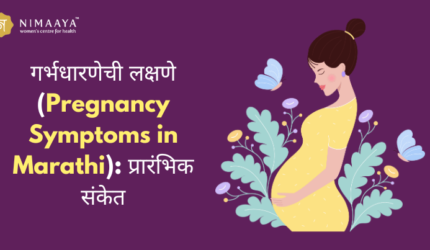Pregnancy is one of the most momentous transformations in a woman’s life; vast physiological and emotional changes accompany it. During this time, a nutrient-balanced diet is important for the mother and for the growth of the baby’s health. Among the numerous natural superfoods, amla, or Indian gooseberry, has a special position due to its phenomenal nutritional profile and health benefits.
This extensive guide is all set to discuss amla benefits during pregnancy, different possible risks related to amla consumption during pregnancy, ways to include amla in the diet and other precautions for consumption.
Is Amla good during pregnancy?
Ladies and Gentlemen, it is important to bear in mind that amla provides a lot of health benefits and is going to be healthy for women during pregnancy. It has all types of vitamins and minerals like vitamin C, calcium, iron, and fiber-amla is going to make both mother and child healthy. As vitamin C increases immunity, it acts as an agent in reducing infections in the body and also helps improve iron absorption and, thus, prevents anaemia.
The fibre content in amla helps keep the digestive system clean and, thus, solves small problems like constipation and bloating. Moreover, there are natural antioxidants that detoxify the body, and their tangy taste helps to shun nausea and morning sickness. Well, amla also guarantees fetal health through its consumption since it provides numerous essential vitamins like calcium and phosphorus.
However, the safety precautions of amla for pregnant women do not mean consuming unlimited amounts of fruit because side effects, such as acidity or diarrhoea, might be reported by some. It is advisable to consult a medical practitioner before changing your diet during pregnancy.
Nutritional Profile of Amla in Pregnancy
An essential fruit loaded with vitamins and minerals is Amla. An amla of 100 g fresh amla gives:
- Vitamin C: Amla is among the richest natural alternatives for vitamin C, which mainly helps in immunity and acts as a strong antioxidant.
- Calcium: Important for the strong development of teeth and bones in the fetus.
- Iron: Needed to maintain good hemoglobin levels and prevent anemia.
- Fiber: Useful in digestion and prevents constipation, one of the most common problems during pregnancy.
- Other Nutrients: Amla is also rich in potassium, magnesium, phosphorus, and other bioactive compounds such as tannin and flavonoids.
Benefits of Amla During Pregnancy
Boost Immunity: Amla in pregnancy can cause a drop in immunity and allow infections to infiltrate the human body. Amla has a high amount of vitamin C, which helps boost immunity by stimulating white blood cell production while neutralizing toxic free radicals.
Improves Digestion: Digestive problems like bloating, acid reflux or constipation are major companions to pregnancy. While natural acidity helps to stimulate gastric juices for better digestion, the high amount of amla fibre can aid in bowel movement regulation.
Brings Down Mornings Sickness: Amla’s tangy and refreshing taste can help ease nausea and vomiting that are usually cause in the first three months.
Support Fetal Development: Calcium and phosphorus in amla contribute to the structural development of bones, teeth, and muscles in tiny babies. Vitamin C complements better absorption of iron to provide good oxygen availability to the fetus.
Fights Anemia: Iron deficiency anemia is a widespread problem among women during pregnancy. Because of its high vitamin C content, it increases iron absorption from food and supplements, thus helping to maintain healthy levels of hemoglobin.
Regulates Blood Pressure: The potassium present in amla helps to balance the electrolytes and prevents hypertension, thus diminishing the probability of complications like preeclampsia.
A natural detoxifier amla: Detoxifies the body’s systems. Cleanses blood and liver, without which pregnancy would be impossible.
Goes a Long Way for Skin and Hair: Those makeovers along with hormones are then proven to define whether skin and hair are beautiful; amla in pregnancy is the proven antioxidant that would help keep the natural glow and reduce hair fall.
Reduces Swelling: Edema or swelling in the legs and feet is a common issue during pregnancy. Amla’s anti-inflammatory properties help reduce swelling and improve blood circulation.
Manages Gestational Diabetes: Amla has a low glycemic index and can help regulate blood sugar levels, making it beneficial for women with gestational diabetes.
Consumption Methods Of Amla In Pregnancy Diets
- Fresh Amla: The most simple method of taking advantage of fresh amla is to eat it. Wash the fruit thoroughly and eat it raw or sliced.
- Prepare Amla Juice: You can mix amla juice during pregnancy with some water and a touch of honey and drink this refreshing drink. It works best against nausea and boosts energy levels.
- Amla Candy: Those who do not like too sour food could also use dried or candied amla.
- Amla Powder: Amla powder can easily be added to smoothies, yoghurt, or soups for extra nutrients.
- Amla Pickle: You can also enjoy homemade amla pickle in a minimal salt and oil version as a tidy souring agent in your meals.
- Amla Chutney: Blend fresh amla with mint, coriander, and spices to make a delicious chutney that complements Indian dishes.
Read More: Benefits and Risks of Coconut Water During Pregnancy
Side effects of amla during pregnancy
Most women can consume amla in pregnancy. However, it’s important to consume it within limits. Listed below are some precautions:
- Excess Avoid over dosage: since it causes diarrheic or cramps in the stomach due to its high fibre content.
- Allergic Reactions: Individuals may show rare allergic reactions to amla in pregnancy. If any adverse effects are shown, stop taking it and consult your doctor.
- Interaction with Medications: Premedication for gestational diabetes or hypertension needs a doctor’s consultation before you introduce amla into your meal.
- Heartburn: Amla itself could cause vomiting from its acid. Most pregnant women start taking it with alkaline foods.
Traditional and Medicinal Uses of Amla in pregnancy
In Ayurveda, Amla has been extensively used in ancient and modern works to promote general well-being and to cure different ailments. Their properties are claimed to be:
- Rasayana (Rejuvenator): Increased vitality and supporting of longevity.
- Pachana (Digestive): Relieves the disturbed conditions of the stomach and improves digestion.
- Chakshushya (Eye Health): Protects and supports vision against strain.
Therefore, as an ideal holistic medicine, this amla provides benefits in developing maternal health in an individual during pregnancy.
Scientific Evidence Supporting the Benefits of Amla in pregnancy
Numerous research studies lend credence to the health effects of amla:
- Antioxidant Properties: Studies showed the presence of antioxidants which protect switching oxidative stress and inflammatory changes into cells promoting overall health by consuming amla in pregnancy.
- Absorption of Iron: A research in the Journal of Nutritional Biochemistry concluded that vitamin C drastically increases the absorption of non-heme iron, thereby decreasing the chances of getting anaemic.
- Gastrogastric well-being: Amla stimulates digestive enzymes, thereby increasing the bioavailability of nutrients in the body, as well as decreasing gastrointestinal discomforts such as constipation and gas.
- Regulation of Blood Sugars: Amlas has been shown to lower blood glucose levels, thus being a natural remedy for gestational diabetes.
People Also Search: Baccha Kaise Hota Hai
Conclusion
Amla is a powerhouse of nutrients that offers a plethora of health benefits for pregnant women. From boosting immunity and improving digestion to supporting fetal development and preventing anemia. It is a natural superfood that deserves a place in your pregnancy diet. However, as with any dietary addition amla during pregnancy, moderation and consultation with a healthcare provider are essential.
For personalized guidance on maintaining optimal nutrition and improving reproductive health during pregnancy, consider reaching out to Nimaaya IVF Center. A trusted resource dedicated to enhancing maternal well-being.











